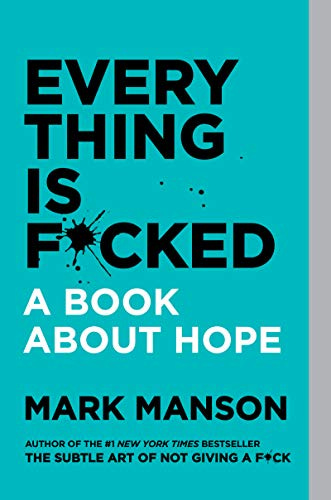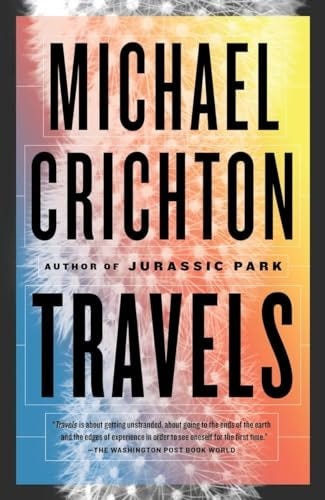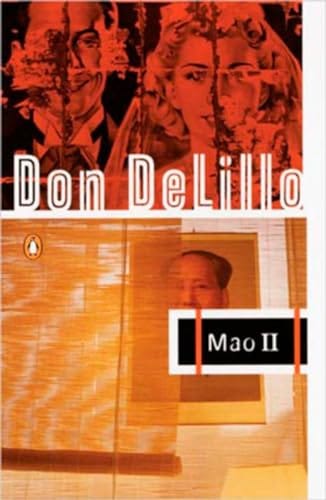Saved by a Book: How One Story Changed Everything
Books that changed my thinking, behaviors, and life
Hello,
An irony of this newsletter, Three Book Thursday, is that I was 21-years-old before I read my first book cover to cover. Before then, books were like kryptonite—a source of anxiety, fear, and failure.
In elementary school, I leaned on my parents and siblings for help with assignments. By middle school, I cheated my way through reading-related tasks (something I’m not proud of). By high school, I was so far adrift I can’t even remember how I managed to get by. Two years into college, my GPA was a dismal 2.1, and I was utterly lost. I lacked the tools for success—my vocabulary was limited, I had no grasp of grammar rules, and my patience for reading and writing was nonexistent.
They say rock bottom is a powerful teacher. I hit it hard.
And then, as luck would have it, opportunity found me.
At the start of my junior year at the University of Wisconsin–Madison, I stumbled upon a used book sale at the Memorial Union library. As I walked by, one title caught my eye: The Autobiography of Malcolm X. I picked it up, paid for it, and walked home.
When I opened that book, something shifted.
I read it—devoured it—in two days. Malcolm’s story spoke to me in a way nothing ever had. His transformation—from a life of oppression and struggle to one of purpose and impact—lit a spark in me. If Malcolm X could rise from his circumstances to become a leader and thinker, then what excuse did I have?
That book didn’t just teach me about his life; it inspired me to rewrite my own.
After finishing the book, I went out and bought a dictionary, a grammar book, a spelling book, and a notebook. Every day after class, I read. I circled words I didn’t know, looked them up, and wrote them down in that notebook—which I still have today. A few months later, I added grammar and spelling to my routine, going back to the basics to rebuild my foundation.
Two years later, my girlfriend—now my wife—told me something that would stick with me forever: “If you want to be a strong writer, you have to read.” She’s one of the best writers I know (no bias; you should read some of her work). She was right. Reading and writing became my daily practice, and over time, I began to see the progress I had once thought impossible.
By the time I started graduate school, books were my constant companions. I carried one everywhere. Ten minutes between classes? I read. Waiting in line at a cafe? I read. I felt like I had years of lost time to make up for, and I was determined to catch up.
One day in the research lab, I walked in with a book, and a postdoc—a brilliant scientist I admired—asked me what I was reading. I told him and suggested he check it out. His response has stayed with me ever since: “I don’t read anymore. I’ve read enough books to last a lifetime.” He was in his early thirties.
At the time, I was impressed. This was someone who clearly had spent years reading and learning, and now he was at the pinnacle of his field. But as the years passed, that statement began to trouble me.
Saying you’ve read enough books is like saying you’ve taken enough breaths. Stop breathing, and your body shuts down. Stop reading, and your mind and soul begin to wither, losing the nourishment they need to grow and thrive.
Books are fuel. They inspire creativity, provoke thought, offer new perspectives, and evoke emotions that remind us what it means to be human. Books take us into worlds we’d never otherwise experience. They show us who we are and who we can become.
Whenever I feel off balance—emotionally, mentally, or spiritually—it’s often because I’ve let certain habits slip. I’ve stopped exercising, spent too much time on social media, or neglected reading. And every time, it’s the simple act of opening a book that helps me recalibrate.
Growth should never stop. Life is about strengthening relationships, acquiring wisdom, and challenging ourselves to think bigger.
But today, distractions are everywhere.
Social media, texts, emails—they pull at us relentlessly. That’s why I keep coming back to books. Because no matter how chaotic the world gets, they offer a refuge. They remind me to slow down, to reflect, and to reconnect with what matters most.
So here’s my challenge to you: the next time you feel the compulsion to check your phone, resist. Instead, pick up a book.
Read a single page.
Then another.
And if that book doesn’t resonate, find one that does. Keep reading. Because every page is a step toward growth, and every book is a reminder that there is wonder all around us—if we’re willing to look for it.
Dr. Seuss said, “You can find magic wherever you look. Sit back and relax, all you need is a book.” That spark doesn’t fade with time or experience—it deepens.
The more we read, the more we expand our capacity for empathy, understanding, and curiosity, reminding us that every book holds the potential to change the way we see the world and ourselves.
Welcome to this week’s Three Book Thursday.
1. Personal development
Everything is F*cked
Summary
I’ll be honest—I read Manson’s first book, The Subtle Art of Not Giving a F*ck, and while I thought it had some solid moments, it didn’t blow me away. So, I didn’t rush to dive into his other work. But then I caught him on a podcast, and something about the way he broke down human behavior, struggle, and meaning really resonated with me. His insights were sharp, refreshingly honest, and unafraid to challenge conventional wisdom. So, I picked up Everything is F*cked, and I’m glad I did.
Manson takes a deep dive into human psychology, philosophy, and history to explore the paradox of our time: even though life has objectively never been better, we’re more anxious, depressed, and overwhelmed than ever before. He tackles the concept of hope—not as something inherently good or bad, but as a force that can both drive and destroy us. He argues that much of our suffering comes from misguided hope—our desperate attempts to believe in something bigger, control the uncontrollable, or chase happiness like it’s a destination rather than a fleeting state.
What struck me most about this book is its brutal honesty. Manson doesn’t sugarcoat reality; he makes you sit with discomfort, face hard truths, and question your assumptions. He discusses the “Feeling Brain” versus the “Thinking Brain” and how, despite our belief that we make rational decisions, emotions drive almost everything we do. He unpacks the ways we trick ourselves into believing we have control when, in reality, we’re driven by unseen forces—biology, culture, trauma, and cognitive biases that shape our perception of the world.
One of the most thought-provoking ideas in the book is that real freedom doesn’t come from having unlimited choices—it comes from commitment. In a society obsessed with optimization, self-improvement, and having endless options, Manson reminds us that meaning isn’t found in the ability to do anything at any time. It’s found in choosing something—whether it’s a career, a relationship, a mission—and fully investing in it. This resonated with me deeply. We chase freedom as if it’s about removing constraints, but often, it’s the constraints we willingly accept that give us purpose.
Since reading this book, I’ve made Manson’s podcast a regular listen. He’s got a way of cutting through the noise, challenging conventional wisdom, and forcing you to think about things differently. Everything is F*cked isn’t a light read, but it’s a necessary one. It forces you to confront your own illusions, question where you place your hope, and ultimately redefine what it means to live a meaningful life.
Favorite Quote, Insight, & Principle
Quote: I have tried to live my life such that in the hour of my death I would feel joy rather than fear.
Insight: Being heroic is the ability to conjure hope when there is none. To strike a match to light up the void. To show us a possibility for a better–not a better world we want to exist, but a better world we didn't know could exist. To take a situation where everything seems to be absolutely f*cked and still somehow make it good.
Principle: When people prattle on about needing to find their "life purpose," what they really mean is that it's no longer clear to them what matters, what is a worthy use of their limited time here on earth–in short, what to hope for.
Author: Mark Manson
Themes: Personal development, Living a full life
2. Memoir
Travels
Summary
Travels by Michael Crichton isn’t the book you expect from the man who wrote Jurassic Park and The Andromeda Strain. It’s not a thriller or a science-fiction epic—it’s something far more personal, a memoir of both physical and internal exploration. And when I read it in medical school, it hit me like a jolt of creative energy. It was the book I didn’t know I needed at the time, and for whatever reason, it has stayed with me as one of the most personally impactful and inspiring reads of my life. Maybe it resonated most in that earlier period, when I was searching, questioning, and figuring out what kind of life I wanted to live. But even now, years later, its lessons remain.
At its core, Travels is about curiosity—the kind that drives people to push boundaries, challenge assumptions, and seek deeper truths. Crichton, who trained as a doctor at Harvard Medical School, takes us on a journey that is anything but linear. He begins with his years in medicine, where he learned not just about the human body but about human nature—how people respond to crisis, how perception shapes reality, and how science, for all its precision, has its limits. But once he steps away from medicine, the book takes off in unexpected directions.
Crichton travels everywhere—remote islands, bustling cities, treacherous mountains—and his writing makes you feel like you’re right there with him, absorbing the landscapes, the cultures, and the lessons embedded in each experience. But what makes Travels special isn’t just the places he goes—it’s the transformation that takes place within him. The deeper he ventures into the world, the more he confronts his own limitations, fears, and preconceptions. He dives into spiritual exploration, into the unseen, into ideas that science can’t always explain. And while not every experience lands for every reader, the larger point is clear: real growth happens at the edges of what we know.
That’s what made this book so powerful for me in medical school. It reinforced something I was just beginning to understand—life isn’t about following a rigid path, checking the right boxes, and staying in the safe zones. It’s about asking bigger questions, about pushing yourself into the unknown, about embracing the discomfort that comes with discovery. Crichton’s travels—whether climbing Kilimanjaro, studying shamanistic healing, or exploring the depths of his own mind—serve as a reminder that we are all, in one way or another, on a journey far greater than the one we think we’re on.
Travels is an invitation to rethink what it means to grow. It’s a book about taking risks—not reckless ones, but the kind that expand your understanding of the world and of yourself. It’s about learning that the most valuable insights often come from unexpected places. And it’s about realizing that the real journey, the one that matters most, isn’t just the one that takes you to new places—it’s the one that changes you along the way.
Favorite Quote, Insight, & Principle
Quote: Fear is a story we tell ourselves, and like any story, we have the power to rewrite it.
Insight: The greatest discoveries often come when you step beyond what is familiar and allow yourself to be lost.
Principle: Life is not about certainty; it’s about learning to navigate the unknown with curiosity and courage.
Author: Michael Crichton
Themes: Memoir, Patient care, Residency training, Travel, Personal development
3. Fiction
Mao II: A Novel
Summary
Mao II by Don DeLillo is a novel that wrestles with the power of words, the shifting role of the artist, and the way mass movements shape—and often consume—individual identity. At its core, this book is about the tension between creation and destruction, between solitude and spectacle, between the private mind and the collective force of history. DeLillo explores how, in an era dominated by terrorism, media saturation, and ideological extremism, the writer’s voice is at risk of being drowned out.
This book resonated with me because it forces you to ask: Who really controls the narrative? Are we, as individuals, shaping the world, or are we just being shaped by forces too large to resist? As someone who believes deeply in the power of ideas—I found Mao II to be both unsettling and illuminating.
The novel follows Bill Gray, a reclusive novelist whose decades-long isolation is interrupted when he’s drawn into the orbit of political violence. Gray, once celebrated for his brilliance, now struggles with the weight of his own obscurity. His silence becomes a metaphor for something larger—the way writers and thinkers, once the driving force of cultural change, have been replaced by mass movements and media-driven spectacle. The novel suggests that, in a world obsessed with images and ideologies, the artist’s role is no longer to influence history, but to be consumed by it.
The book moves between different landscapes—New York, Beirut, London—each setting revealing the global nature of this struggle. Terrorism and literature are, in DeLillo’s view, two sides of the same coin: both are acts of radical expression, both seek to disrupt the status quo, and both rely on spectacle to make an impact. It’s a deeply unsettling idea, but one that forces us to rethink the narratives we take for granted.
Mao II serves as a reminder that real change comes not from spectacle, but from persistence. The novel challenges us to consider whether we’re adding to the noise or creating something that endures. It forces us to ask: Are we shaping the world, or just reacting to it?
At a time when attention is the most valuable currency, this book is a powerful meditation on what it means to be seen, to be heard, and to fight for meaning in a world that often reduces people to mere images. Mao II is not just about the power of words—it’s about the responsibility of those who wield them.
Favorite Quotes, Insights, & Principles
Quote: When the old gods leave, new ones take their place, and they are never merciful.
Insight: There is a moment when you realize the world doesn’t need your permission to exist.
Principle: What survives is not the thing itself, but the echo it leaves behind.
Author: Don DeLillo
Themes: Fiction
At its core, this week’s Three Book Thursday is about transformation—the power of books to reshape not just our knowledge but our very identity. My journey from fearing books to being saved by them mirrors the deeper truth that growth isn’t a linear path; it’s often an uncomfortable, humbling process of undoing and rebuilding.
We see this echoed in Everything is F*cked, which forces us to confront the illusions we build around hope and control. In Travels, Michael Crichton reminds us that true discovery—whether scientific, personal, or creative—happens when we step beyond the familiar. And Mao II challenges us to reflect on how we navigate a world where individual voices risk being lost in the noise.
At the heart of all these stories—mine included—is the idea that transformation is a choice. We are not static beings. We are shaped by what we expose ourselves to, by what we question, by the ideas we allow in. The mind, like the body, requires nourishment. If we stop feeding it—stop learning, stop seeking, stop reading—we stagnate.
So the challenge is simple: keep growing. Resist the distractions pulling you away from deeper thought. Pick up a book, let an idea challenge you, and allow it to shape who you become. Because the most profound changes often begin in the quiet moment when you turn the first page.
Always ❤️📚💡
Three Book Thursday is free, but there are many costs to create these posts each week. So, can you do me a favor?
If you find value here, please support the newsletter.
Or,
Please share Three Book Thursday with a friend, college, family member, or post it to your socials. I’m working hard to grow this audience, but let’s be honest—you’re probably better at it than I am.
Or, do both!







I look forward to Three Book Thursday eagerly. Our bookcase is filling with your recommendations and some additional books. Thank you Aside from Danielle’s books I love Nora Ephron. She makes me laugh! Linda. 😉🥰